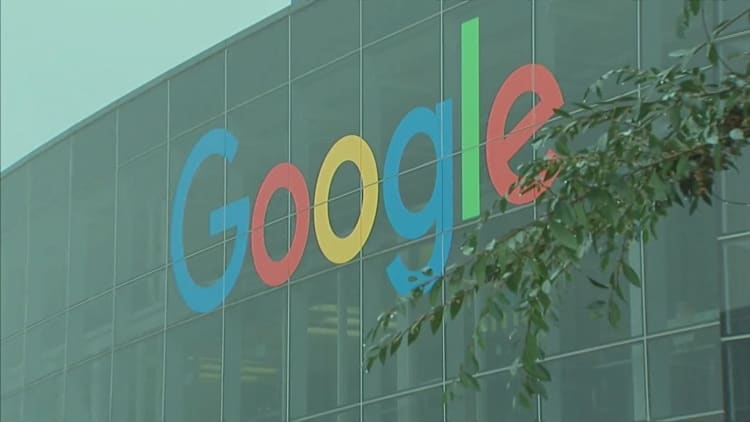Alphabet has officially launched Gradient Ventures, a new firm within Google that will invest in early-stage artificial intelligence start-ups.
The announcement on Tuesday is the latest sign of Alphabet's growing interest in AI, a futuristic technology that's also gaining significance at Amazon, Apple, Facebook and Microsoft. Axios reported on the new program in May, but the details were not yet public.
Gradient will invest in 10 to 15 deals this year and will typically commit $1 million to $8 million in each, said Anna Patterson, founder and managing director of the firm.
"If we're really going to help AI happen faster, we needed to be more involved in the community," said Patterson, who's spent about a decade at Google working on Android, search, advertising and AI. "That's why we decided to do this -- to spur innovation in the AI space."
But Gradient isn't just another Silicon Valley funding source for start-ups, or even a typical corporate venture capital group. Alphabet already has GV (formerly Google Ventures), which backs start-ups at all stages, and CapitalG (formerly Google Capital), which invests in later-stage companies.

Gradient portfolio companies will have the opportunity to receive advanced AI training from Google. They can also have a Google engineer work onsite and provide assistance as needed for a set period of time, said Patterson.
"If you go to an AI conference now, when start-ups talk, they get up there and they say kind of heroic things about how they've acquired talent," Patterson said. "I realized that we could really help there."
The details haven't been fully ironed out, but the idea is to have a Google engineer do a rotation for six months -- or perhaps longer if a project needs more time -- and potentially have the engineer split time across multiple portfolio companies.
Patterson, who spent three years as co-founder and president of search start-up Cuil, said that Google engineers "would love to have a super-productive break."
Start-ups already participating in the program include Aurima, Cape, Cogniac and Dyndrite. Last month, Algorithmia said it received backing from Google's AI venture group, although the name of the firm had yet to be revealed.
Another perk is that portfolio companies will be able to access vast swaths of training data that Google has accumulated to train their own AI systems.
That's a meaningful perk for Cape, a start-up that runs an online service for remotely controlling drones. The additional data will help Cape in its security and asset inspection work, said Louis Gresham, the company's co-founder and operating chief.
Google is the sole investor in Gradient. GV did 63 deals last year, while CapitalG did six, according to data from PitchBook. Ankit Jain and Shabih Rizvi are Gradient's other partners.
While some start-ups will surely welcome the extra help that comes with having a Google engineer temporarily on board, others might be concerned about compromising their valuable intellectual property.
Patterson stressed that there will be an agreement expressly forbidding Google employees from bringing that IP back in-house. And Patterson said that seasoned entrepreneurs are welcoming the Google help.
"The pitch has resonated more with more experienced entrepreneurs," she said.


